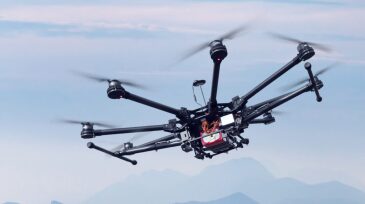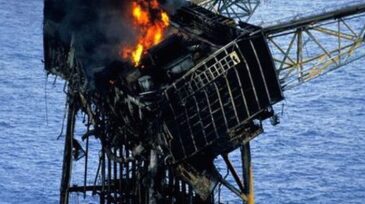Safety
The company said its frequency of serious incidents was down at the end of the year from its levels at the end of 2024.
This paper examines how real-time monitoring can improve both incident prevention and emergency response in the oil and gas industry. Drawing from real-world examples and case studies, it provides practical strategies for implementing this technology effectively.
This paper presents a novel application of artificial intelligence in computer vision for automating blowout-preventer pressure-chart-data extraction, demonstrating significant efficiency gains and a high return on investment.
-
Members of the workforce, especially those in industries that require manual labor, are becoming increasingly concerned about injury and fatality while on the job.
-
The criticality of above-water riser hull piping requires frequent inspections. Traditional manual inspection methods present safety and efficiency concerns, but work is being done to see if robotic technologies—such as drones and crawlers—can do the job as good as, or even better than, humans.
-
As drones become a more significant part of energy projects, the guide outlines the steps operators should take in assessing their capabilities to run a drone program and the elements such programs should consider, including safety and regulatory concerns.
-
The American Petroleum Institute announced the publication of its Guide for Developing an Unmanned Aircraft Systems Program, which will help ensure worker and operational safety as the industry introduces drones in its operations.
-
Some environmentalists and community activists have demanded the commission stop issuing permits until the new rules are complete.
-
Aberdeen’s Opex Group and an industrial behavioral psychologist are designing a tool that will combine data from diagnostic surveys with historical data on oil and gas accidents and spills.
-
Buildings that are manned or house critical equipment ideally will be a safe distance from potential explosions. Maintaining the required stand-off distance, however, is not always possible. This paper discusses challenges and best practices for blast protection of plant buildings.
-
Digitalization and new technologies are disrupting old practices and shaping a new safety landscape for the oil and gas industry. At OTC, a panel sponsored by the Center for Offshore Safety looked at the effects of some of these new technology trends.
-
Behavior is neutral. This simple mantra will set your safety program free of the dysfunctions that kill your safety culture. Behavior is not right or wrong, good or bad. It just is. Approach behaviors with the dispassionate, objective view of a scientist.
-
The National Institute for Occupational Safety and Health has developed an evidence-based method that uses the criteria of "burden," "need," and "impact" to identify research priorities.













